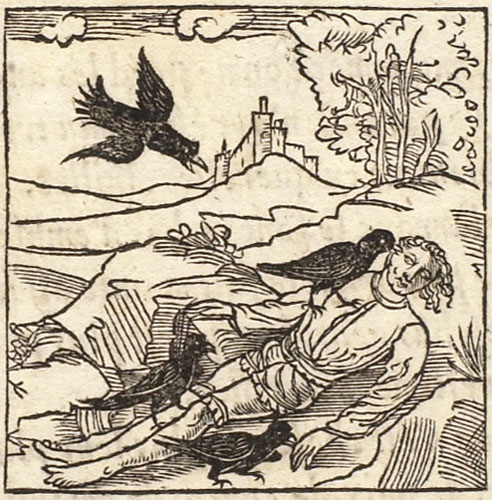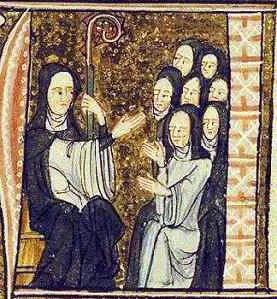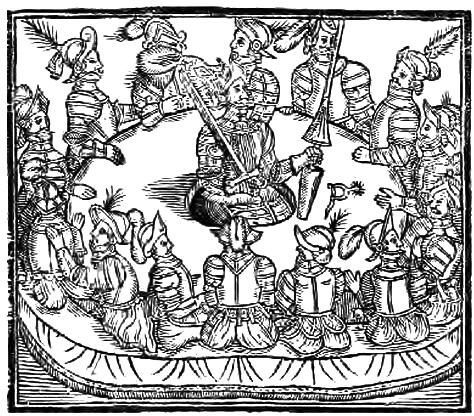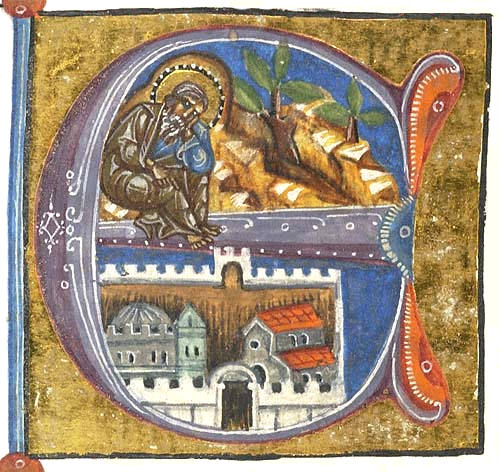Find our existing and planned programmes below, or request a new one!
We strive to live up to our name in our programmes: dynamic; likely to include winds, stars, mountains, or sailing; sometimes strange or disturbing . . . and always a journey.
(How does that relate to our name? You can find out on our Home page.)

Featured programmes
Scroll or jump further down for our full list!
Parlement of Foules
 Loosely inspired by Valentine’s Day and more closely by Chaucer’s poem ‘Parlement of Foules’, which is an account of the birds’ troubles when expecting to choose a mate on this day, eventually resolved in a good-natured way. On the other hand, birds observing humans on Valentine’s Day see a far less innocent picture!
Loosely inspired by Valentine’s Day and more closely by Chaucer’s poem ‘Parlement of Foules’, which is an account of the birds’ troubles when expecting to choose a mate on this day, eventually resolved in a good-natured way. On the other hand, birds observing humans on Valentine’s Day see a far less innocent picture!
See the programme page for more details!
To Dust Thou Shalt Return
 Ease into Lent with this Ash Wednesday programme of chants and polyphonic pieces that creates just the right atmosphere of introspection and repentance. It anticipates both the grief and the hope of the coming season.
Ease into Lent with this Ash Wednesday programme of chants and polyphonic pieces that creates just the right atmosphere of introspection and repentance. It anticipates both the grief and the hope of the coming season.
The programme page is still under construction.
Under His Tongue Doth Mischiefe Sit OR A Morality Play Gone Wrong
 This performance was called ‘both funny and poignant’ by the art show curator who commissioned it. Using medieval and Renaissance texts, music, and images along with a sprinkle of our own writing, we have created a morality play about threat, dehumanisation, war, and the wish for compassion, wisdom, and peace.
This performance was called ‘both funny and poignant’ by the art show curator who commissioned it. Using medieval and Renaissance texts, music, and images along with a sprinkle of our own writing, we have created a morality play about threat, dehumanisation, war, and the wish for compassion, wisdom, and peace.
Find out more about the texts and music we use on the detailed programme page!
More programmes
~ details and number of performers may vary ~
England, Be Glad!
 Music of the medieval and Renaissance courts in Britain with connections to Europe, covering generations of royalty over 400 years and including music by kings Richard I and Henry VIII. Pieces about love, war, religion, and fun. A flexible and versatile programme for any season and a wide range of events!
Music of the medieval and Renaissance courts in Britain with connections to Europe, covering generations of royalty over 400 years and including music by kings Richard I and Henry VIII. Pieces about love, war, religion, and fun. A flexible and versatile programme for any season and a wide range of events!
See the programme page for more details.
Lenten Selection

We have a variety of Lenten programmes, which you can also find further down. Caught in the Current has a water theme — tears, fountains, streams, rivers, the sea — and is built around Psalm 42, works best closer to Holy Week. To Dust Thou Shalt Return is under development for Ash Wednesday or early Lent. Death Lurks in His Shoe is also suitable for Lent along with other times of year. In addition, we are available in a voice/viols combination to present a day’s Lamentation Lessons (20-30 minutes) during a service or a vigil, or in other format as requested.
To Dust Thou Shalt Return
 Ease into Lent with this Ash Wednesday programme of chants and polyphonic pieces that creates just the right atmosphere of introspection and repentance. It anticipates both the grief and the hope of the coming season.
Ease into Lent with this Ash Wednesday programme of chants and polyphonic pieces that creates just the right atmosphere of introspection and repentance. It anticipates both the grief and the hope of the coming season.
The programme page is still under construction.
Caught in the Current
 Designed for Lent, especially Passiontide
Designed for Lent, especially Passiontide
This water-themed programme is structured on Psalm 42. Water is a metaphor for God as the source of all life but also of great destruction. Despite our best intentions, we are swept from the nourishing fountainhead to flail through the streams and rivers of accumulating hardships to the deep wrathful sea . . . and then beyond. This journey is reflected in the texts of our medieval and Renaissance chants and motets.
See the programme page for more details!
Death Lurks in His Shoe OR Danse Macabre through an English Lens
 Poetry from unnamed Middle English writers to Shakespeare has colourful ways of reminding us that death can come from anywhere, at any time. Join us in exploring this allegorical landscape of poetry, polyphony, chants, and dance music, covering centuries of approaches to preparing for death and whatever might come next. For any season, but especially for All Hallows, Lent, or the death of the old year.
Poetry from unnamed Middle English writers to Shakespeare has colourful ways of reminding us that death can come from anywhere, at any time. Join us in exploring this allegorical landscape of poetry, polyphony, chants, and dance music, covering centuries of approaches to preparing for death and whatever might come next. For any season, but especially for All Hallows, Lent, or the death of the old year.
Programme page under construction!
Ascending from Darkness
![]() Suitable for Ascension. This voices and viols programme starts with a section called IN THE DEPTHS OF DARKNESS, including material from Holy Week, and moves through an assortment of sacred and secular works in sections called CROOKED PATHS and ASCENDING INTO LIGHT. Composers may include Saint Hildegard von Bingen, Palestrina, Lassus, di Rore, Ferrabosco I, Morley, Dowland, Campion, Charpentier, and more.
Suitable for Ascension. This voices and viols programme starts with a section called IN THE DEPTHS OF DARKNESS, including material from Holy Week, and moves through an assortment of sacred and secular works in sections called CROOKED PATHS and ASCENDING INTO LIGHT. Composers may include Saint Hildegard von Bingen, Palestrina, Lassus, di Rore, Ferrabosco I, Morley, Dowland, Campion, Charpentier, and more.
See the programme page for more details.
Parlement of Foules
 Loosely inspired by Valentine’s Day and more closely by Chaucer’s poem ‘Parlement of Foules’, which is an account of the birds’ troubles when expecting to choose a mate on this day, eventually resolved in a good-natured way. On the other hand, birds observing humans on Valentine’s Day see a far less innocent picture!
Loosely inspired by Valentine’s Day and more closely by Chaucer’s poem ‘Parlement of Foules’, which is an account of the birds’ troubles when expecting to choose a mate on this day, eventually resolved in a good-natured way. On the other hand, birds observing humans on Valentine’s Day see a far less innocent picture!
See the programme page for more details!
Under His Tongue Doth Mischiefe Sit OR A Morality Play Gone Wrong
 This performance was called ‘both funny and poignant’ by the art show curator who commissioned it. Using medieval and Renaissance texts, music, and images along with a sprinkle of our own writing, we have created a morality play about threat, dehumanisation, war, and the wish for compassion, wisdom, and peace.
This performance was called ‘both funny and poignant’ by the art show curator who commissioned it. Using medieval and Renaissance texts, music, and images along with a sprinkle of our own writing, we have created a morality play about threat, dehumanisation, war, and the wish for compassion, wisdom, and peace.
Find out more about the texts and music we use on the detailed programme page!
Advent programme
 In the Christian calendar, Advent is a time of great anticipation – of Christ’s coming, yet also foreboding: a promise of the suffering to follow and of his second coming. It is a time for introspection and reflection, yet also for celebrating the Virgin Mary. This uplifting as well as thought-provoking programme includes traditional carols and hymns along with lesser-known works to put things in a different perspective.
In the Christian calendar, Advent is a time of great anticipation – of Christ’s coming, yet also foreboding: a promise of the suffering to follow and of his second coming. It is a time for introspection and reflection, yet also for celebrating the Virgin Mary. This uplifting as well as thought-provoking programme includes traditional carols and hymns along with lesser-known works to put things in a different perspective.
See the programme page (still under construction) for more details.
Old programmes
From Love to Madness
Zephyro spira e il bel tempo rimena
Bartolomeo Tromboncino (c1470 – 1535)
There are other winds, which bring the joy and happiness of love,
except that for us it’s torment . . .
~~~
Con dolce brama
Magister Piero (c1300 – c1350)
The wind is good! Let’s sail into my lady’s harbour!
What needeth all this Travail
John Wilbye (1574 – 1638)
Love over riches.
Doulce Memoire
Antonio Gardane (1509 – 1569)
Love conquers all. While it lasts . . .
~~~
A la una yo nací
Turkish Sephardic (13th century)
I love you, but I’m leaving you to go to war!
Chanterai por mon corage
Guiot de Dijon (fl 1215 – 1225)
My beloved is away on a holy pilgrimage. God keep him safe from the Saracens!
Durch Barbarey Arabia
Oswald von Wolkenstein (c1376 – 1445)
Sometimes it’s being settled that drives one mad . . .
Doulce Memoire
Josquin Baston (c1515 – c1576)
Love over.
Nightingale/Adue sweete loue
Richard Sumarte (fl c1590-1630)/ Tobias Hume (c1569 – 1645)
And again.
La Vita Fugge
Alonso Mudarra (c1510 – 1580)
I lost my love, and now I’m lost . . .
~~~
Ne l’aria in questi di
Cipriano de Rore (1515/16 – 1565)
Fighting fate in a fortress of folly and futility.
La Folia
Diego Ortiz (c1510 – c1570)
Some more foolishness . . .
Who will ascend to heaven
Giaches de Vuert (1535 – 1596)
You wounded me. I think I’m going mad . . .
Lasse pour quoi refusai
Anon, Chanson de Femme (14th century)
I wounded you. I must have been mad!
~~~
Doulce Memoire
Pierre Sandrin (c 1490 – c1561), divisions by Diego Ortiz
From North to South
ALBION
Lamento di Tristano/La Rotta – Anon, (14th century)
Three Ravens – Thomas Ravenscroft (1582/92 – 1635)
Who will ascend to heav’n – Giaches de Vuert (1535 – 1596)
THE OLD CONTINENT
Ach weh des Leiden – Hans Leo Hassler (1564 – 1612)
Innsbruck, Ich muss dich lassen – Heinrich Isaac (c1450 – 1517)
Ne l’aria in questi di – Cipriano de Rore (1515/16 – 1565)
ITALIA
Con dolce brama – Magister Piero (c1300 – c1350)
Douce Memoire – Antonio Gardano (1509 – 1569)
Ancor che col partire – Cipriano de Rore (1515/16 – 1565) /Riccardo Rogniono (1550– 1620)
IBERIA
Cantiga de Santa Maria – Anon (13th century)
Una tarde de verano – Moroccan Sephardic (14th century)
La Vita Fugge – Alonso Mudarra (c1510 – 1580)
ALL OVER THE WORLD
Durch Barbarey Arabia – Oswald von Wolkenstein (c1376 – 1445)
From Fountains to Rivers to the Sea
Water programme – secular
Sample pieces
See Seasonal Offerings for sacred version
Prologue
My breast I’ll set upon a silver stream – John Ward (1571 – 1638)
First Part: A Fountaine of teares
O passi sparsi – Sebastiano Festa (c1490/95 – 1524)
Second Part: Along the river I swimme
Innsbruck, ich muß dich lassen (Heinrich Isaac, c1450 – 1517)
Reverci Venir Du Printemps – Claude Le Jeune (c1528/30 – 1600)
Third Part: Lost on Sea
Nel mezzo gia del mar – Niccolò da Perugia (fl c1350-1400)
Epilogue
Hor che’l ciel e la terra – Bartolomeo Tromboncino (c1470 – 1535)
